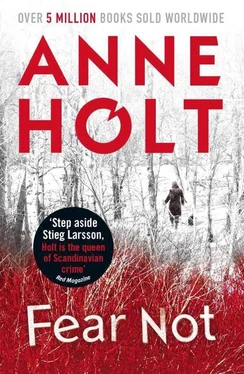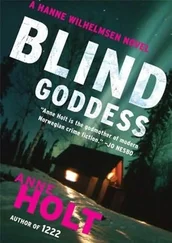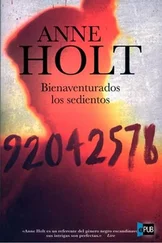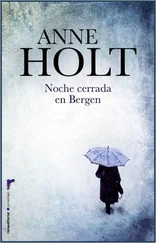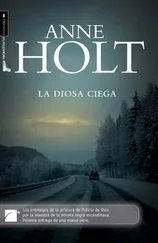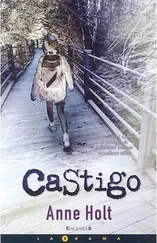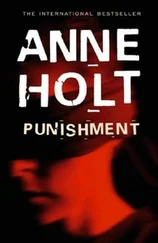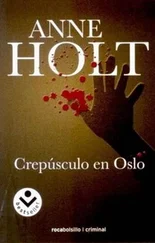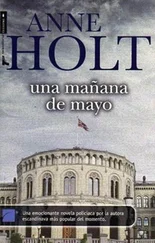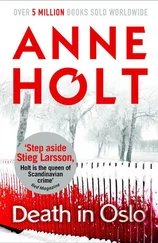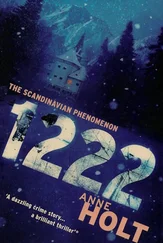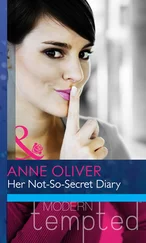A background article made it clear that Niclas certainly had his demons. He was HIV positive, but the condition was kept in check with the help of medication. Since the age of eighteen he had ended up in rehab three times. His last stay, four years ago, had been a success. His best work had been created since then, and two of his collaborators expressed great surprise at the fact that Niclas had started using heroin again. He was on the brink of a major international breakthrough, and particularly in the last few weeks before his death he had seemed contented, almost happy. Previous relapses had occurred as a result of artistic setbacks, so it was difficult to understand why he would have sought refuge in drugs at this point.
Johanne was aware that she was breathing more calmly, and was actually starting to feel tired. Reading about the misfortunes of others could sometimes provide a new perspective on things. She allowed the newspaper to drop on to the bed, and her eyes closed.
Kristiane is safe, she thought, feeling that sleep was on its way at last.
She didn’t even dare to lie down and turn out the light. She just wanted to slip into the darkness inside her eyelids. Sleep. Just wanted to sleep.
Kristiane is safe with Isak and tomorrow I will speak to Adam. Everything will be fine, we’ll all be fine.
When she woke up four hours later the newspaper was still lying in front of her on the bed, open at the article about the dead installation artist Niclas Winter.
***
‘Have you seen this article?’
Kristen Faber looked up reluctantly from his documents and took the newspaper his secretary was holding out to him.
‘What’s it about?’ he mumbled, trying to cram the rest of the Danish pastry in his mouth without making too many crumbs.
A fine shower of greasy dough and almond paste landed on his shirt front and he leaned forward in an attempt to brush it off without leaving a stain.
‘Isn’t that yesterday’s paper?’
‘Yes,’ said his secretary. ‘I took it home after work, as usual, and I found this. It’s hardly surprising that your client didn’t turn up! He’s dead.’
‘Who?’
He carried on chewing and held the paper up in front of him with one hand.
‘Oh,’ he said with his mouth full. ‘Him. Jesus. Wasn’t he quite young?’
‘If you read the article,’ said his secretary with an indulgent smile, ‘then-’
‘I never read the stock market page. Let’s see. Niclas Winter. Aha. An overdose, eh? Poor sod. It looks as if…’
He stopped chewing now.
‘Bloody hell. He was famous. I’ve never heard of the bloke. Except as a potential client, I mean.’
As he put the newspaper down on the desk, his secretary went off to find a dustpan and brush. He carried on reading as she swept the floor around him, and he was still reading when she went away and returned with a Thermos of freshly brewed coffee.
‘Your breakfast isn’t particularly nutritious,’ she said gently, filling his cup. ‘You ought to eat before you leave home. Wholemeal bread or cereal. Not Danish pastries, for heaven’s sake! When did you last drink a glass of milk, for example?’
‘If I needed a mother around here I’d employ my own. Where are those bloody documents?’
He had started shuffling through the heaps of current material. He was certain he’d placed the sealed brown envelope in the pile on his desk before he went home for a shower, after an eventful return flight from Barbados. Now it was nowhere to be seen.
‘Shit. I’m due in court in fifteen minutes. Can you try and find his papers? They’re in a sealed envelope with Property of Niclas Winter and his date of birth on it.’
He stood up, pulled on his jacket and grabbed his briefcase on the way to the door.
‘And Vera! Don’t open it! I want to have that pleasure myself!’
The door slammed behind him, and once again silence descended on the office of Kristen Faber, solicitor.
***
Astrid Tomte Lysgaard didn’t really know if she liked the depth of silence in the house when Lukas had gone to work and the children had been dropped off at school and nursery. None of her friends were housewives, apart from the obligatory year after each birth, but she had the impression that most of them envied her the peace they assumed must descend on the house each day between 8.30 and 4.15.
For a long time she had felt the same way.
The daily housework rarely took more than three hours, often less. Although she took the children each morning and picked them up each afternoon, and did all the family shopping, there was still a lot of time left over. She read. She enjoyed going for walks. Twice a week she went to the Nautilus gym on Idrettsveien. Occasionally, she would feel a pang of unhappiness, but it never lasted long.
The fact that everything was done and dinner was on the table when Lukas got home made the afternoons calm. Made their life together more enjoyable. Family life much better. They could spend time with the children instead of worrying about the housework, and Lukas showed her every single day how grateful he was that she had chosen to stay at home.
Since her mother-in-law’s death, everything had changed.
Lukas was grieving in a way that frightened her.
He seemed so distant.
Mechanical.
He said very little, and was prone to losing his temper, even with the children. Under normal circumstances he was the one who sat down and helped their eldest son with his schoolwork, but at the moment he was clearly unable to concentrate on the complexities of Year 2 homework. Instead, he had started clearing out the garage, where he was intending to to build new shelves along one wall. It must be freezing cold out there every evening, and when he finally did come in he would eat his evening meal in silence, then go to bed without even touching her.
It was so quiet in the house, and she didn’t like it.
She set down the iron and went over to the window to switch on the radio. Another miserable day was pressing itself against the wet glass. Surely it had to stop raining soon. January was always a desolate month, but this one was worse than usual. The low pressure was actually having a physical effect on her; for several days she had been troubled by a slight headache, and now it had got worse. Her temples were pounding, and she tried massaging them gently. It didn’t help at all. She would go to the bathroom and take a couple of Alvedon before finishing the ironing.
There were no painkillers in the locked medicine cabinet. She searched in despair among Asterix plasters and Flux, bottles of Pyrisept and Vademecum. Not a painkiller in sight, apart from suppositories for children.
It was as if not being able to find any tablets had made the headache worse.
Lukas’s migraine tablets, she thought.
They would help.
The problem was that they weren’t in the medicine cabinet. Lukas thought the lock was too easy to force, and strong medication could be dangerous for a curious eight-year-old. Instead, he kept the box locked in the drawer of the big desk in his study. Astrid knew where the key was: behind a first edition of Around the World in Eighty Days , which his parents had given him on his twenty-first birthday.
She had never opened the drawer, and hesitated before inserting the key in the lock.
They had no secrets from one another, she and Lukas.
Perhaps she ought to ring and ask him first.
He was her husband, she thought wearily, and she only wanted one tablet. Lukas had never told her not to look in the drawer. The very idea of telling each other not to do something was completely alien to them.
The lock opened with an almost inaudible click. She pulled out the drawer and found herself staring down at a photograph. A woman, and the photograph must be quite old. For a while she just stood there looking down at it, then eventually she picked it up, cautiously, and held it under the brighter light of the desk lamp.
Читать дальше
